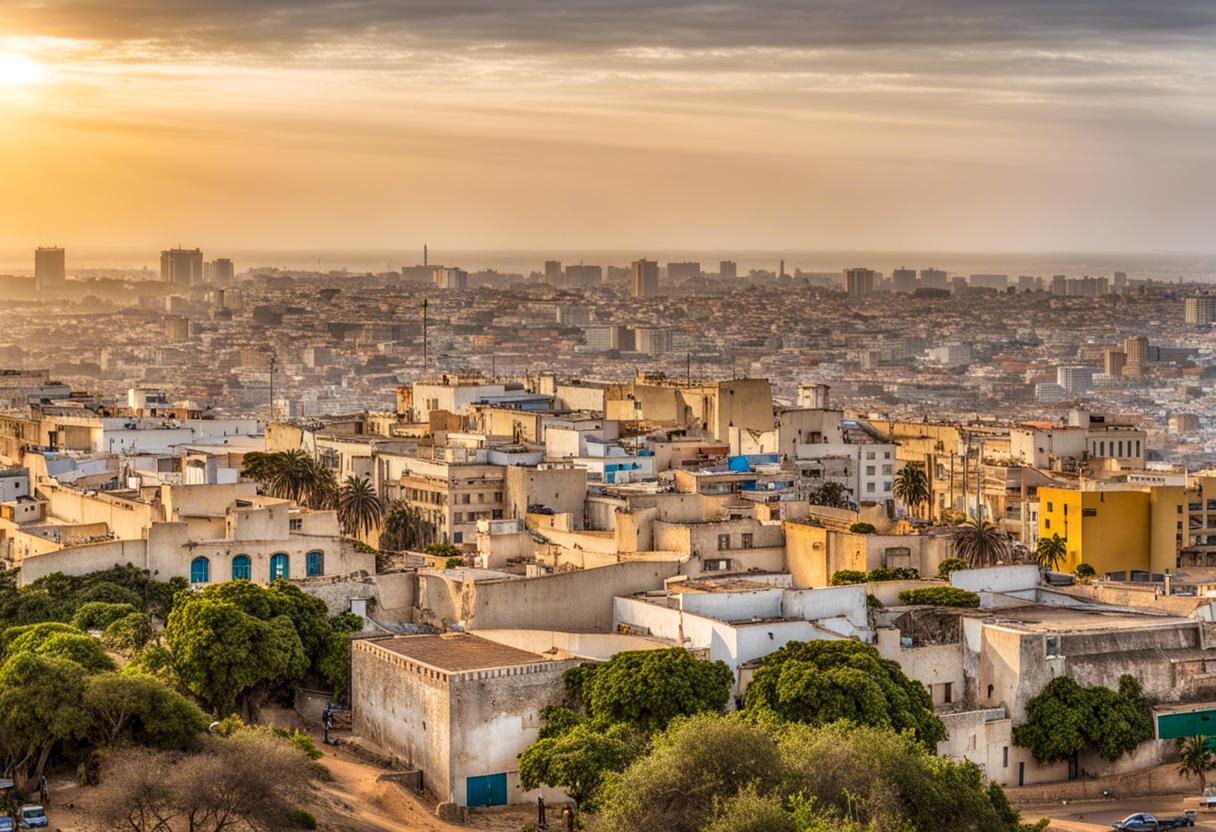Bassirou Diomaye Faye is poised to be the next President of Senegal following the admission of defeat by the candidate of the governing party, Amadou Ba, granting a comprehensive win to the opposition coalition. Prior to the official announcement of results, Mr Ba, who held the position of prime minister until recently, acknowledged in a declaration from the Benno Bokk Yakaar governing coalition on Monday that Mr Faye had triumphed in the initial round of the election.
Amadou Ba expressed his congratulations and wishes for prosperity for Mr Faye, and for the continued success of the Senegalese people.
With his 44th birthday coinciding with the day of the ballot, Mr Faye managed to secure 56% of the votes against Ba’s 31%. This concluded the first round of voting with Mr Faye’s outright victory, considering he achieved over the 50% threshold thereby eliminating the need for a second ballot. According to early estimates by independent local observers and with most votes counted, the official results are set to be released by the Senegalese electoral body, CENA, and then authenticated by an appeals court.
The turnout for the elections was impressive, with over 70% of the seven million registered voters casting their ballots. In contrast to analysts’ predictions of a close race and the possible need for a second round, the results were quite clear-cut.
The incumbent president, Macky Sall, saluted Mr Faye’s win, hailing it as a “triumph for Senegalese democracy”.
Mr Faye’s ascendancy is nothing short of extraordinary, considering his release from prison just under a fortnight ago. He had spent close to a year detained on assorted charges including contempt of court and actions inciting public unrest.
Mr Faye stepped in as the opposition parties’ candidate after their initial nominee, Ousmane Sonko, was disqualified from the presidential race due to defamation charges. Senegal’s laws prohibit those convicted of crimes from purusing the presidency.
As the mayor of Ziguinchor, a town in the south, Mr Sonko endorsed Mr Faye. Throughout their campaign, the alliance maintained that both men espoused equivalent ideals and principles.
Mr Faye, the previous secretary general of Pastef before its disbandment by the government on grounds of fomenting disorder, was also a former tax inspector. He and Mr Sonko enjoy a considerable following among the young Senegalese, who have shown dissatisfaction with the current political order. This band of youthful supporters have either taken to the streets in protest or attempted to leave their homeland.
In his political agenda, Mr Faye has pledged to promote transparency in governance and scrutinise contracts in the fledgling oil and gas industry in Senegal. This implied commitment has left some investors feeling uneasy. Mr Ba, being an experienced politician who served as a foreign and finance minister, was widely seen as the safe pair of hands who wouldn’t jeopardise the status quo.
However, as the election neared, both Mr Faye and Mr Sonko softened their stance and withdrew their intent to withdraw from the CFA currency – a currency pegged to the euro and used in numerous West and Central African nations.
The election preparations were disrupted when Mr Sall deferred the voting, initially planned for February 25th, on grounds of concerns over candidate vetting. The parliament, largely filled with the President’s supporters, concurred and opted for a 10-month difference. This caused public outrage in Senegal, known for its democratic transitions amidst a region plagued by coups. Mr Sall was accused of an unlawful attempt to prolong his tenure.
The constitutional council of Senegal censured Mr Sall for the voting delay and ensured the president’s term couldn’t be prolonged. Mr Sall agreed to step down at the peak of his second term on April 2nd.
Babacar Ndiaye, the research director at the Wathi research facility in Dakar, affirmed Senegal’s resilience amid tough circumstances and stated the country’s democratic structures were firm, despite occasional setbacks.
Senegal’s dollar eurobonds experienced a minor uptick when Mr Ba admitted defeat to Mr Faye. The nation’s 2033 bond, noted a moderate increase, trading at 84 cents on the dollar, an enhancement nearing 1%.
Copyright The Financial Times Limited 2024.

